Abstract
This study evaluated the performance of the Xpert Carba-R assay for detecting the five common carbapenemases in carbapenemase-producing organisms in Johannesburg, South Africa between April 2021 and September 2021. The assay demonstrated 98% sensitivity and 97% specificity. It was also able to detect all the carbapenemases in double carbapenemase producers, as well as carbapenemases in non-fermenter organisms. The Xpert Carba-R assay, therefore, allows the rapid (< 1 h) and accurate identification of the common carbapenemases in pure bacterial cultures and rectal swabs. This assay can aid in the timeous institution of appropriate treatment and infection prevention and control measures.
Keywords: Enterobacterales; carbapenemase-producing Enterobacterales; carbapenemase; Xpert Carba-R; rectal screening.
Introduction
The rapid spread of carbapenemase-producing Enterobacterales (CPE) is a major threat to public health worldwide.1 Moreover, carbapenemases in Enterobacterales reside on mobile genetic elements that facilitate their widespread dissemination to other bacterial species or genera, which can spread from person to person, particularly in hospital settings.2,3
Carbapenemases have been classified into four classes (A, B, C, and D).4 Within these classes, the most common carbapenemases are Klebsiella pneumoniae carbapenemases (KPC) in class A, imipenemases (IMP), Verona integrated metallo-β-lactamases (VIM) and New Delhi metallo-β-lactamases (NDM) in class B, and the class D oxacilinases (OXA)-type enzymes (e.g. OXA-48 and its variants).2,4
In South Africa, the most dominant carbapenemases are NDM and OXA-48 and its variants.5,6,7 A recent report by Perovic et al. revealed an alarming increase in the prevalence of OXA-48 and its variants.7 This is concerning as OXA-48 and its variants can be missed by routine antimicrobial susceptibility testing as these isolates demonstrate low-level resistance to the carbapenems.8 Therefore, rapid and accurate detection of carbapenemases through rectal screening of high-risk patients is crucial for infection prevention and control measures.3 Automated molecular assays such as the Xpert Carba-R (Cepheid, Sunnyvale, California, United States) offer rapid detection of the five common carbapenemases.9
To our knowledge, no data has been published on the performance of the Xpert Carba-R assay in the African setting. To adopt this assay in our laboratories, local verification taking into account the local epidemiology and the prevalence of the disease is essential.10 Therefore, this study aimed to evaluate the performance of the Xpert Carba-R assay on carbapenemase-producing organisms using cultured isolates and spiked rectal swab specimens in Johannesburg, South Africa.
Methods
Ethical considerations
Ethics clearance for this study was obtained from the University of Witwatersrand Ethics Committee (study approval number: M210752). Researchers involved in this study provided stool samples voluntarily, with verbal consent for which written documentation was kept. The stool samples were used as matrices for the preparation of spiked rectal swabs. To maintain confidentiality as well as protect researchers’ privacy, all data were anonymised and no personal identifiers were used.
Sample collection
The study was conducted at the Infection Control Laboratory Services in Johannesburg, South Africa, between April 2021 and September 2021 using a collection of 95 previously characterised Enterobacterales isolates. These included 66 CPE positive for either the blaKPC, blaNDM, blaVIM, blaOXA-48, or blaIMP-1 gene, and 29 non-CPE isolates. The 66 CPE were characterised using either the Resist-4 O.K.N.V. kit (Coris BioConcept, Gembloux, Belgium) or the LightMix® multiplex polymerase chain reaction (PCR) carbapenemase kit (TibMolBioL, Berlin, Germany) and the results were used as the reference genotypes. In addition, 10 uncharacterised non-fermenter Gram-negative bacteria were included in the study to determine the performance of the assay in detecting carbapenemases in these organisms.
Xpert Carba-R assay performance
To determine the accuracy, sensitivity, and specificity of the Xpert Carba-R assay, the 95 bacterial cultures were processed according to the manufacturer’s instructions. Briefly, bacterial suspensions corresponding to the 0.5 McFarland turbidity standard (Thermo Fisher, Johannesburg, South Africa) were prepared from fresh cultures. Thereafter, 10 mL of each suspension was transferred into a sample reagent vial, vortexed for 10 s, and 1.7 mL of the sample mixture was transferred into the sample chamber of the Xpert cartridge for processing.
Due to challenges in obtaining clinical rectal swab specimens positive for CPE in the absence of an outbreak, rectal swabs spiked with the 95 characterised isolates were used. First, stool samples provided voluntarily by researchers involved in this study were screened for the presence of carbapenemases using the Xpert Carba-R assay as it can be performed directly from the stool and does not require culture. Thereafter, for each of the 95 isolates, 10 mL of a 0.5 McFarland bacterial suspension was added to 990 mL of the negative stool matrix and the mixture was seeded onto the sterile rectal swabs as per Cepheid’s acceptance swab criteria, and then processed following the manufacturer’s instructions.
A true positive was defined as when the expected carbapenemase genes were detected by the assay and a true negative was defined as when no carbapenemase gene was detected in non-CPE isolates and the CPE-negative rectal swabs. A discordant result was defined as an Xpert Carba-R assay result that was different from the reference genotype. Isolates with discordant results were sent to the National Institute for Communicable Diseases for whole-genome sequencing (WGS) to confirm the presence or absence of the targeted carbapenemase genes.
For WGS, total genomic DNA was extracted using the QIAamp Mini Kit (Qiagen, Germantown, Maryland, United States). Sequencing was performed using the NextSeq Instrument (Illumina, San Diego, California, United States) with 2 × 150 base pairs paired-end sequencing per flow cell and the paired-end reads were filtered for quality (Q > 30 and length > 50 base pairs) using Trim Galore v0.6.2 (https://github.com/FelixKrueger/TrimGalore). De novo assembly was performed using SPAdes v3.13 (https://github.com/kbaseapps/kb_SPAdes). Acquired and chromosomal antimicrobial resistance genes were determined using ResFinder v4.1 (https://cge.cbs.dtu.dk/services/ResFinder) and the Comprehensive Antibiotic Resistance Database (https://card.mcmaster.ca/). Carbapenemases identified based on WGS data were considered as the final genotype for discordant isolates and used to determine the accuracy, sensitivity, and specificity of the assay. Data were captured on Microsoft Excel (Microsoft, Redmond, Washington, United States) and analysis was performed using the following equations:



To determine sample stability, spiked rectal swabs were stored at room temperature and tested using the Xpert Carba-R assay on different days: day 0 (day of preparation), 1, 3, 5, and 7. The limit of detection of the assay was also determined by preparing serial dilutions up to 1.5 × 101 colony forming units (CFU)/mL from 0.5 McFarland suspensions of CPE positive for blaKPC, blaNDM, blaVIM, blaOXA-48, and blaIMP-1. Each dilution was tested using the Xpert Carba-R assay. Lastly, the performance of the Xpert Carba-R assay was tested on non-fermenter organisms. Carbapenemases detected in non-fermenter organisms were confirmed using the Resist-4 O.K.N.V. kit (Coris BioConcept, Gembloux, Belgium) and were subjected to WGS at the National Institute for Communicable Diseases in Johannesburg, South Africa. These results were not included in the accuracy, sensitivity, and specificity calculations for the assay.
Results
The Xpert Carba-R assay correctly identified all of the carbapenemases in 94% (61/66) of the tested isolates with a cycle threshold ranging between 20.6 and 27 for culture and between 24.5 and 30.6 for spiked rectal swabs. The assay further detected all double carbapenemase-producing isolates (blaNDM+blaOXA-48) and reported all 29 non-CPE isolates as negative for carbapenemases (Table 1; online Supplementary Table 1).
| TABLE 1: Performance of Xpert Carba-R assay for the detection of carbapenemases in cultured bacterial isolates and spiked rectal swab specimens at the Infection Control Laboratory Services in Johannesburg, South Africa, April 2021 – September 2021. |
Five isolates previously characterised as KPC-producing K. pneumoniae using the LightMix® multiplex PCR carbapenemase kit were negative for the blaKPC gene on the Xpert Carba-R assay as well as on Resist-4 O.K.N.V. Three of these isolates were positive for the blaNDM gene while the other two isolates were positive for the blaVIM (isolate 42) and blaOXA-48 (isolate 43) genes.
Whole-genome sequencing confirmed the presence of blaNDM-1 and the absence of the blaKPC in the three K. pneumoniae isolates; these isolates were thus true positives for blaNDM. Whole-genome sequencing results also showed that isolate 42 was negative for the blaKPC gene, and harbored blaVIM-1, which corroborated the results of the Xpert Carba-R assay. This isolate was considered a true positive for blaVIM. Further, WGS detected the presence of the blaKPC-2 gene in isolate 43, which was not detected by the Xpert Carba-R assay and Resist-4 O.K.N.V kit. Interestingly, the Xpert Carba-R assay and Resist-4 O.K.N.V kit both detected the presence of the blaOXA-48 gene, which was not detected by WGS. Isolate 43 was, therefore, considered a false negative for blaKPC and a false positive for blaOXA-48 (Table 2).
| TABLE 2: Investigation of five discordant results obtained using the Xpert Carba-R assay at the National Institute for Communicable Diseases, Johannesburg, South Africa, April 2021 – September 2021. |
The overall accuracy of the Xpert Carba-R assay was 98%, with a sensitivity of 98% and specificity of 97%. For individual gene targets, the sensitivity and specificity were 100% for blaNDM, blaVIM, and blaIMP-1. The sensitivity for blaKPC was 89% while specificity was 100%, whereas for blaOXA-48, the sensitivity was 100% and the specificity was 97%. The limit of detection for the Xpert Carba-R assay was 1 × 101 CFU/mL for the blaKPC, blaVIM, and blaNDM genes and 1 × 102 CFU/mL for the blaOXA-48 and blaIMP genes. The spiked rectal swabs were still positive on day 7 when stored at room temperature and the assay was found to be 100% reproducible.
The assay was also able to detect carbapenemase genes in non-fermenting Gram-negative bacteria. Two Acinetobacter baumannii isolates were positive for blaNDM and one Pseudomonas aeruginosa isolate was positive for blaVIM. Whole-genome sequencing confirmed the presence of the blaNDM and blaVIM genes in these non-fermenter organisms (Table 3).
| TABLE 3: Performance of Xpert Carba-R assay for the detection of carbapenemases in 10 non-fermenter organisms compared to the Resist-4 O.K.N.V kit and whole-genome sequencing performed at the National Institute for Communicable Diseases, Johannesburg, South Africa, April 2021 – September 2021. |
Discussion
In this evaluation study, the Xpert Carba-R assay demonstrated high performance with 98% sensitivity and 97% specificity when tested on cultured isolates on blood agar as well as on spiked rectal swabs. The results from this study are in agreement with the manufacturer’s information and corroborate results from other evaluation studies conducted in Europe and the United States which demonstrated high sensitivity and specificity.11,12,13 The assay was able to detect double carbapenemases (blaNDM and blaOXA-48) in three K. pneumoniae and two Enterobacter cloacae isolates. The occurrence of two or more carbapenemase resistance genes in CPE is not an unusual phenomenon and has been previously reported in strains of K. pneumoniae and Escherichia coli isolated from Polish tourists surviving the terrorist attack at the Bardo Museum in Tunisia.14 More recently, the occurrence of blaNDM and blaOXA-48 carbapenemases was reported in an outbreak caused by K. pneumoniae in Germany and in K. pneumoniae strains in Greece.15,16
The Xpert Carba-R assay was also able to detect carbapenemases in three non-fermenters. This is in agreement with the manufacturer’s claim that the Xpert Carba-R assay can be performed on pure colonies of Enterobacterales, Acinetobacter baumannii, or Pseudomonas aeruginosa. It is worth noting that the Xpert Carba-R assay has an intrinsic limitation in that it cannot detect carbapenemases that are not part of its test repertoire such as those detected by WGS in this study, including blaOXA-23, which is a potent carbapenemase that spreads via plasmid-mediated transfer and is predominantly found in clinical A. baumannii isolates.17 Although routine screening is not currently recommended for non-fermenter organisms, their increasing prevalence raises questions of concern.18 Further studies are necessary to understand the extent of carbapenemases in non-fermenter organisms and their role in the spread of these enzymes in healthcare settings.
The limit of detection claims by Cepheid for detecting the carbapenemases in rectal swabs ranges between 1 × 101 CFU/swab and 1 × 102 CFU/swab. Furthermore, Cepheid recommends that rectal swabs collected using the rectal specimen collection device (part number 900-0370) can be stored at room temperature for up to five days. These findings were corroborated by our verification. Additionally, spiked rectal swabs remained positive for up to seven days when stored at room temperature.
Limitations
This study had a few limitations. First, the performance of the assay on rectal specimens was tested using spiked rectal swabs instead of clinical specimens. Second, the limit of detection was only tested on cultured isolates and not spiked rectal swabs. Lastly, due to the low prevalence of IMP-producing Enterobacterales, only three isolates were used in the verification, and these included two non-fermenter organisms.
Conclusion
We concur with other studies that the Xpert Carba-R assay offers a reliable and fast method for the detection of the five most common carbapenemases in carbapenemase-producing organisms. The assay can be performed on rectal swab specimens or pure bacterial cultures of carbapenem-nonsusceptible isolates and provides automated results in less than an hour. The assay can detect double carbapenemase producers as well as carbapenemases in non-fermenter organisms. The Xpert Carba-R assay can, therefore, aid in the timeous and appropriate institution of treatment and infection prevention and control measures.
Acknowledgements
The authors would like to thank the staff at the Infection Control Service Laboratory Unit and the Centre for Healthcare-Associated Infections, Antimicrobial Resistance and Mycoses at the National Institute for Communicable Diseases for providing us with the Enterobacterales isolates used in this evaluation study.
Competing interests
The authors declare that they have no financial or personal relationships that may have inappropriately influenced them in writing this article.
Authors’ contributions
S.T.D. was responsible for the literature review, laboratory work, data analysis and manuscript completion. T.T. assisted with manuscript review and provided critical inputs. A.D. was responsible for the concept of this study and provided input in the manuscript. T.P. was responsible for testing the reproducibility of the assay. S.J. and O.P. assisted with WGS and analysis of WGS results.
Sources of support
The Xpert Carba-R kits were donated by Cepheid. The authors received no financial support for the research, authorship, or publication of this article.
Data availability
Raw data were generated at the Infection Control Services Laboratory of the National Health Laboratory Services. Derived data supporting the findings of this study are available from the corresponding author, S.T.D., on request.
Disclaimer
The views expressed in this publication are those of the authors and do not directly represent the views of any support agencies.
References
- Sheu CC, Chang YT, Lin SY, Chen YH, Hsueh PR. Infections caused by carbapenem-resistant Enterobacteriaceae: An update on therapeutic options. Front Microbiol. 2019;10(80):1–13. https://doi.org/10.3389/fmicb.2019.00080
- Queenan AM, Bush K. Carbapenemases: The versatile beta-lactamases. Clin Microbiol Rev. 2007;20(3):440–458. https://doi.org/10.1128/CMR.00001-07
- Reyes JA, Melano R, Cárdenas PA, Trueba G. Mobile genetic elements associated with carbapenemase genes in South American Enterobacterales. Braz J Infect Dis. 2020;24(3):231–238. https://doi.org/10.1016/j.bjid.2020.03.002
- Ambler RP. The structure of beta-lactamases. Philos Trans R Soc Lond B Biol Sci. 1980;289(1036):321–331. https://doi.org/10.1098/rstb.1980.0049
- Thomas TSM, Duse AG. Epidemiology of carbapenem-resistant Enterobacteriaceae (CRE) and comparison of the phenotypic versus genotypic screening tests for the detection of carbapenemases at a tertiary level, academic hospital in Johannesburg, South Africa. S Afr J Infect Dis. 2018;33(5):1–7.
- Osei Sekyere J. Current state of resistance to antibiotics of last-resort in South Africa: A review from a public health perspective. Front Public Health. 2016;4:209. https://doi.org/10.3389/fpubh.2016.00209
- Perovic O, Britz E, Chetty V, Singh-Moodley A. Molecular detection of carbapenemase-producing genes in referral Enterobacteriaceae in South Africa: A short report. S Afr Med J. 2016;106(10):975–977. https://doi.org/10.7196/SAMJ.2016.v106i10.11300
- Perovic O, Ismail H, Quan V, et al. Carbapenem-resistant Enterobacteriaceae in patients with bacteraemia at tertiary hospitals in South Africa, 2015 to 2018. Eur J Clin Microbiol Infect Dis. 2020;39(7):1287–1294. https://doi.org/10.1007/s10096-020-03845-4
- Tato M, Ruiz-Garbajosa P, Traczewski M, et al. Multisite evaluation of Cepheid Xpert Carba-R assay for detection of carbapenemase-producing organisms in rectal swabs. J Clin Microbiol. 2016;54(7):1814–1819. https://doi.org/10.1128/JCM.00341-16
- Burd EM. Validation of laboratory-developed molecular assays for infectious diseases. Clin Microbiol Rev. 2010;23(3):550–576. https://doi.org/10.1128/CMR.00074-09
- Dortet L, Fusaro M, Naas T. Improvement of the Xpert Carba-R kit for the detection of carbapenemase-producing Enterobacteriaceae. Antimicrob Agents Chemother. 2016;60(6):3832–3837. https://doi.org/10.1128/AAC.00517-16
- Smith M, Diederen B, Scharringa J, Leversteijn-van Hall M, Fluit AC, Cohen Stuart J. Rapid and accurate detection of carbapenemase genes in Enterobacteriaceae with the Cepheid Xpert Carba-R assay. J Med Microbiol. 2016;65(9):951–953. https://doi.org/10.1099/jmm.0.000310
- Traczewski MM, Carretto E, Canton R, Moore NM; Carba-R Study Team. Multicenter evaluation of the Xpert Carba-R assay for detection of carbapenemase genes in gram-negative isolates. J Clin Microbiol. 2018;56(8):e00272-18. https://doi.org/10.1128/JCM.00272-18
- Izdebski R, Bojarska K, Baraniak A, et al. NDM-1- or OXA-48-producing Enterobacteriaceae colonising Polish tourists following a terrorist attack in Tunis, March 2015. Euro Surveill. 2015;20(23):21150. https://doi.org/10.2807/1560-7917.es2015.20.23.21150
- European Centre for Disease Prevention and Control. Outbreak of carbapenemase-producing (NDM-1 and OXA-48) and colistin-resistant Klebsiella pneumoniae ST307, north-east Germany, 2019. Solna: European Centre for Disease Prevention and Control; 2019.
- Protonotariou E, Meletis G, Chatzopoulou F, Malousi A, Chatzidimitriou D, Skoura L. Emergence of Klebsiella pneumoniae ST11 co-producing NDM-1 and OXA-48 carbapenemases in Greece. J Glob Antimicrob Resist. 2019;19:81–82. https://doi.org/10.1016/j.jgar.2019.08.020
- Nguyen M, Joshi SG. Carbapenem resistance in Acinetobacter baumannii, and their importance in hospital-acquired infections: A scientific review. J Appl Microbiol. 2021;131(6):2715–2738. https://doi.org/10.1111/jam.15130
- Gniadek TJ, Carroll KC, Simner PJ. Carbapenem-resistant non-glucose-fermenting Gram-negative bacilli: The Missing Piece to the Puzzle. J Clin Microbiol. 2016;54(7):1700–1710. https://doi.org/10.1128/JCM.03264-15
|